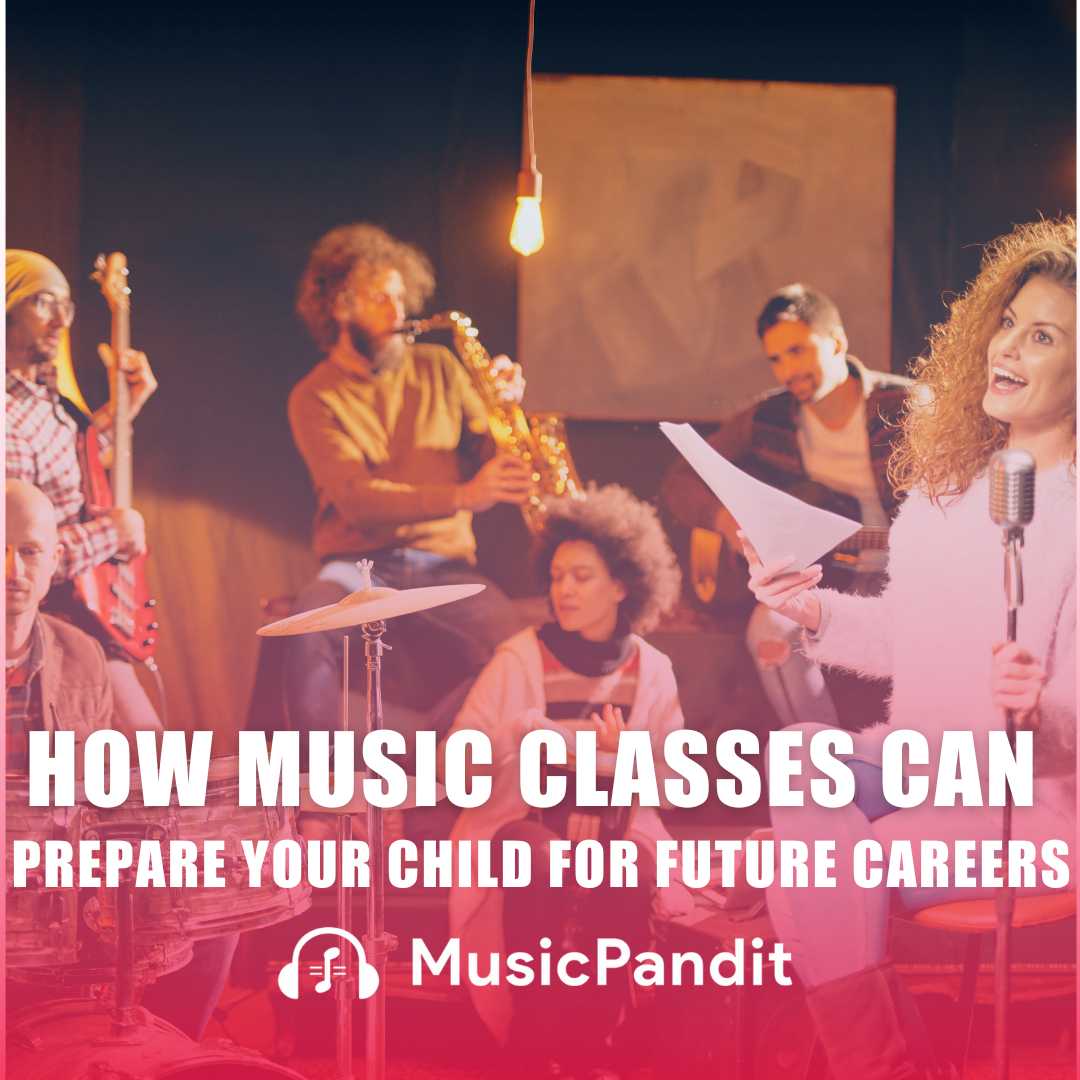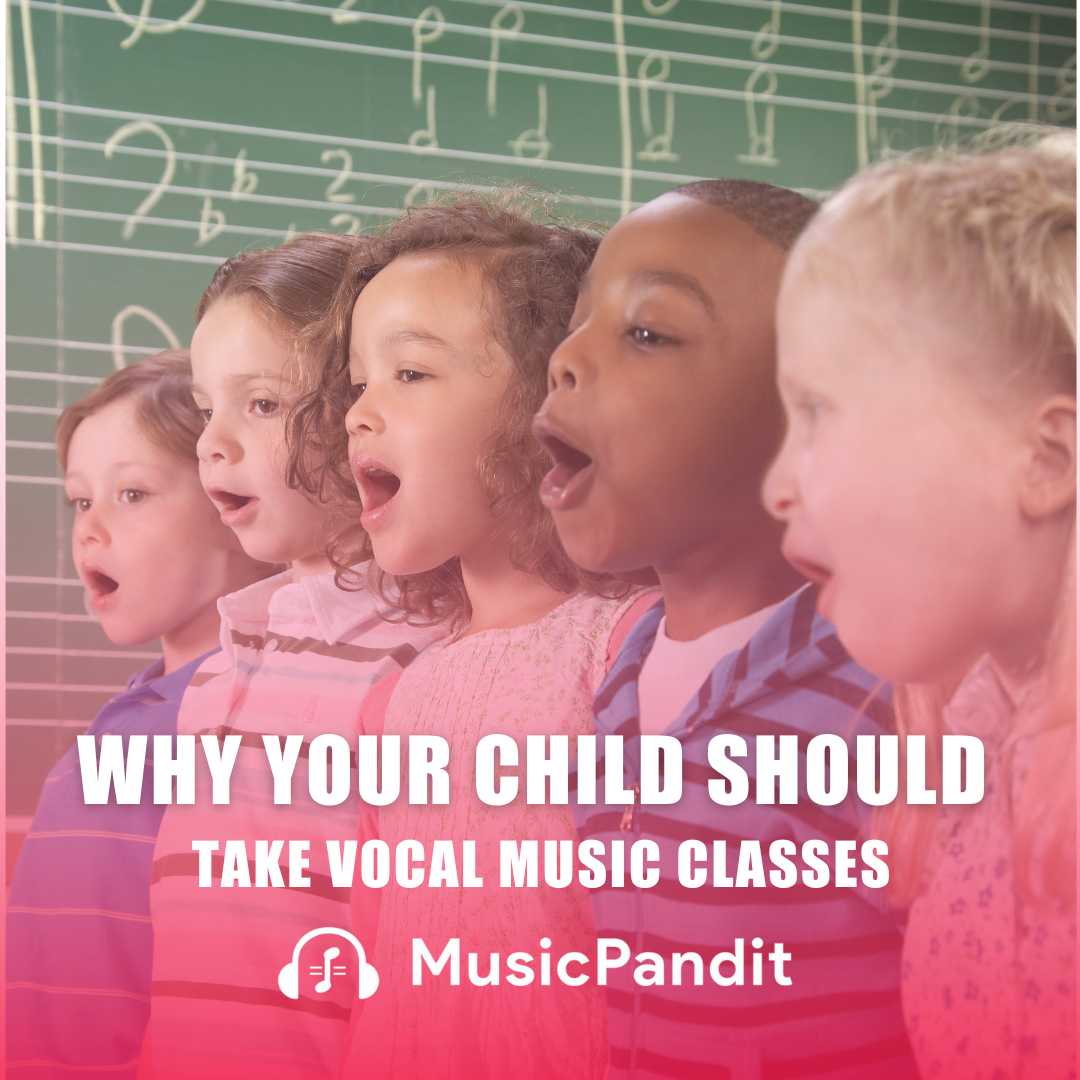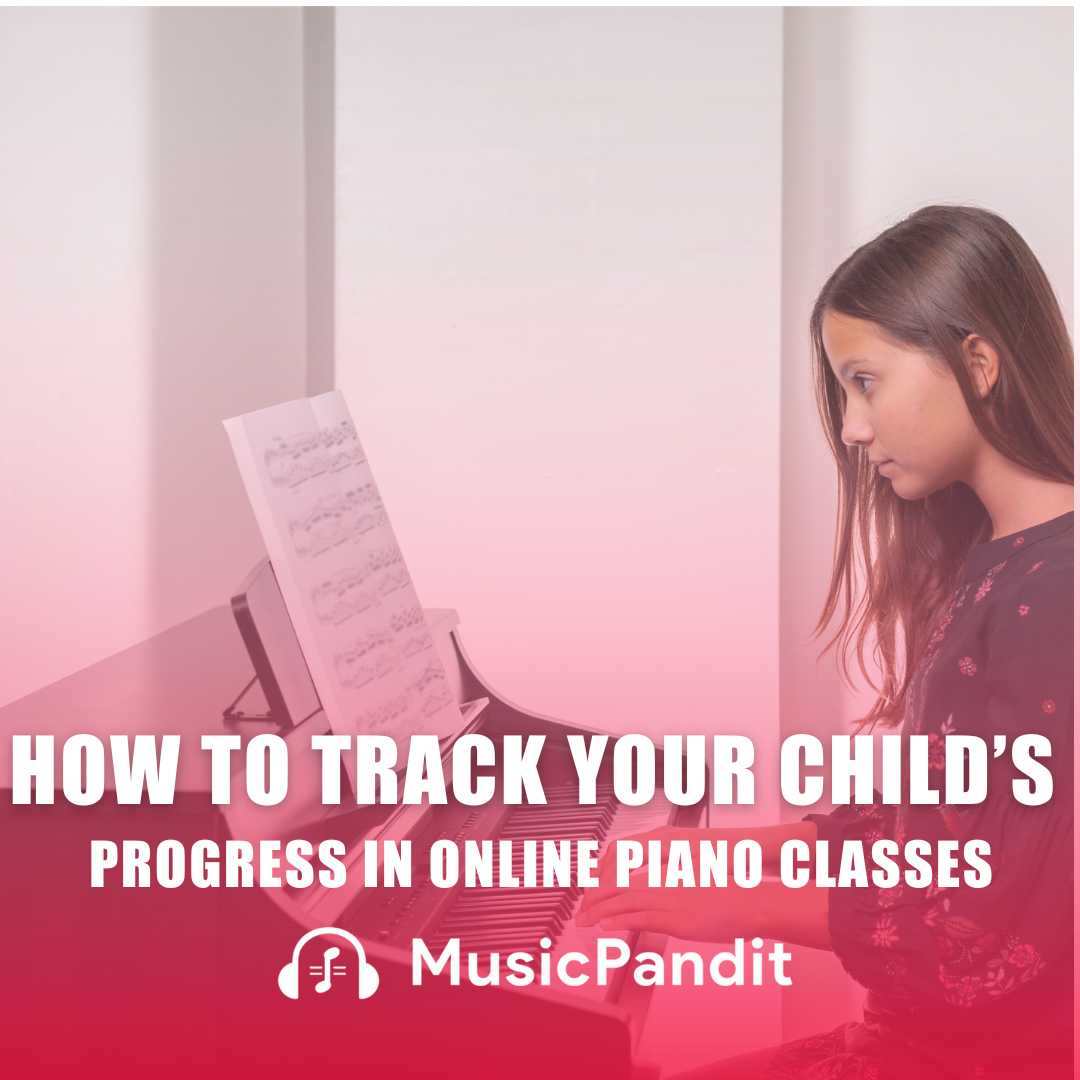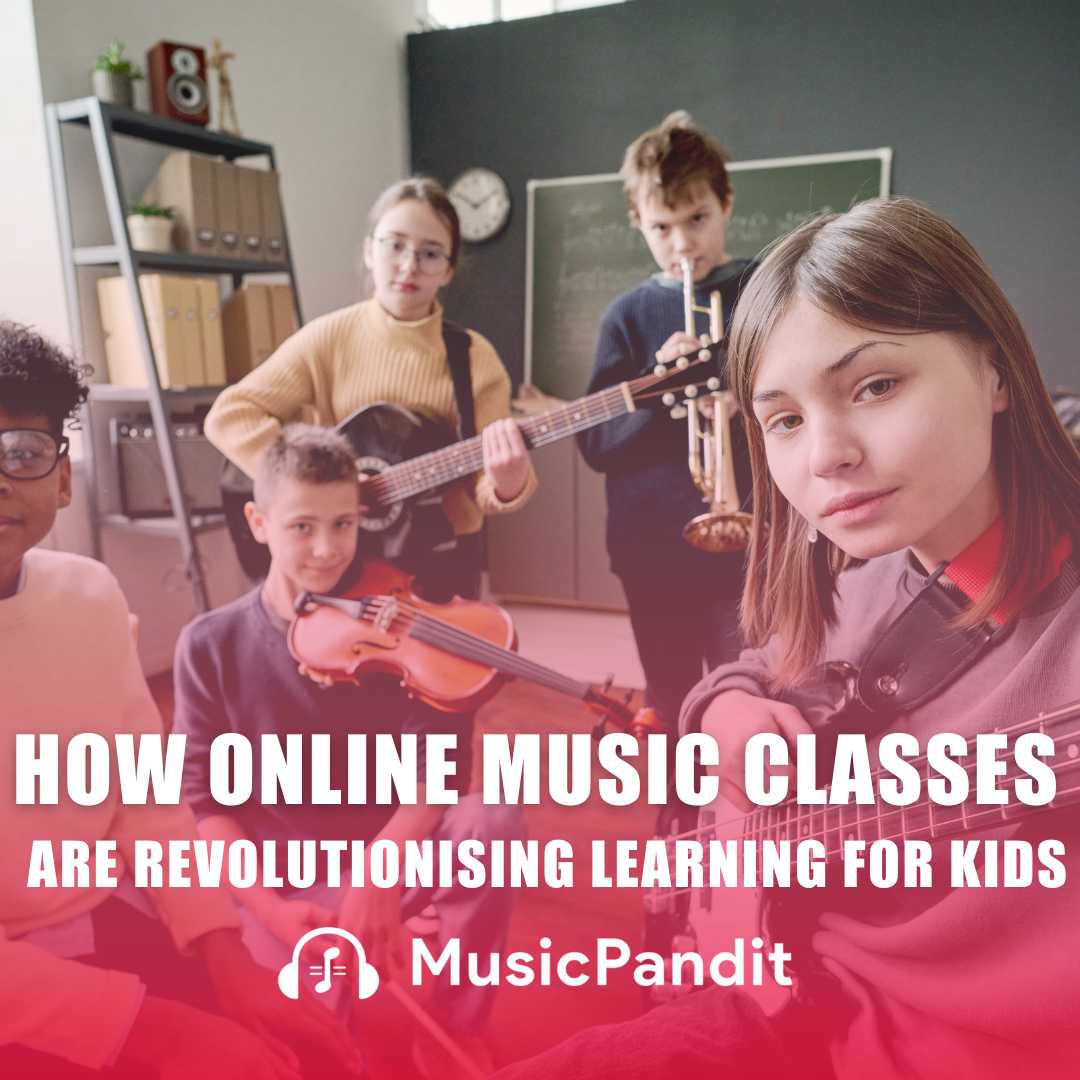Learning to play a musical instrument used to be a pretty conventional or traditional process that called for the student to take live lessons with a teacher. However, since the advent of new technology, online education has grown in popularity and accessibility. Besides, we have seen the impact of online learning during the COVID-19 pandemic.
Thanks to such developments, it has opened up many opportunities for kids to learn music, particularly an instrument, at their own speed, with greater flexibility, and from the comfort of their homes.

Can children learn instruments online? They can indeed study and learn to play instruments online. Learning music online is just as successful as learning from a teacher in person today because of how far music education and its delivery have come.
Moreover, online instrument learning is a fantastic option for different student types – one who is looking to be professional or others who are looking to learn to play just for themselves. In this blog post, we’ll explore all the things related to online instrument learning for children, the benefits and drawbacks as well as some tips for making the most of this type of learning.
Points to Consider Before Enrolling Them in Online Instrument Classes
If you are thinking about enrolling your child for online instrument lessons, there are several points to consider. Make sure your child is capable of working independently. These are questions that you can even ask yourself!
Does my child have the discipline and motivation?
One of the good things about online music learning is that teachers are always there to push their students when they are down. Furthermore, to overcome challenging exercises or musical pieces presented in some lessons, students must also find and develop their own sources of inspiration. Setting goals and recognising your child’s accomplishments (progress) are other ways you may help them stay motivated.
Does my child have the time?
Flexible learning is a great advantage of online learning. While it offers such a facility, your child needs to dedicate time to practise as much as they need to and focus on getting the playing right. Having a set time every day can help but you also must make sure that your child is his/her own taskmaster.
You should also consider these factors as well.
- Age and readiness: Consider your child’s age and readiness to learn an instrument. Very young children may not have the attention span or fine motor skills needed to play an instrument, while older children may be more receptive to online learning.
- Access to equipment: Make sure your child has access to the necessary equipment, such as an instrument, a music stand, and appropriate software or apps for online lessons. Some music schools may provide these items, while others may require you to purchase them.
- Quality of instruction: It’s important to research the quality of instruction offered by the online music school or instructor. Look for reviews and testimonials from other parents and students and consider reaching out to the instructor to ask about their qualifications and teaching style.
- Technical requirements: Check the technical requirements for online music lessons, such as internet speed and device compatibility. Make sure your child’s device is compatible with the online platform used by the instructor and that you have a stable internet connection.
- Learning preferences: Consider your child’s learning preferences. Children may thrive more in a group class than one-on-one online classes.
Overall, online instrument lessons can be a great option for children who are interested in learning guitar, keyboard or any other instruments online. By considering these points before enrolling your child, you can help ensure a positive and successful learning experience.
Benefits of Learning Instrument Online
Convenience and Flexibility
One of the greatest advantages of learning an instrument online is convenience. Children can learn from their own homes, eliminating the need for parents to drive them to and from the music centres. Online learning makes it easier to fit music lessons into a busy schedule.
Moreover, online instrument classes offer more flexibility than in-person lessons. The lessons can be customised to meet the needs of each child, and they can learn at their own pace. Children can now devote more time to areas where they need extra support and less time in areas where they excel.
Access to Qualified and Experienced Teachers
Children gain access to experienced and knowledgeable instructors from all around the world through online music classes. This implies that kids can study from the top teachers wherever they are. Children are able to select from a broader pool of teachers when taking music lessons online. Ultimately, they can find one who matches their learning preferences.
Individual Instruction
Children receive personalised training and instruction from a tutor who specialises in their chosen subject through online sessions. This is especially beneficial for kids who might not have access to a local instructor who is skilled in their instrument of choice.
Technology-enhanced Learning
Online instrument lessons can be enhanced with technology such as video and audio recording, interactive apps, and digital sheet music. These tools can help children learn more quickly and effectively.
Additionally, parents are spared the expense of paying for transportation to and from lessons when taking music lessons online.
Online learning challenges
Technology is one of the main challenges in an online music education setup. To take part in online music lessons, children require a computer or tablet, reliable internet connection, and a webcam. Children must also have a basic or fundamental understanding of technology in order to use and navigate through the online learning platform.
Alternatively, children who learn at home may become distracted easily, especially if they are not in a peaceful, designated area for the classes. Siblings jumping suddenly during the class, dogs running around, and other household activities or noises might cause distractions and interfere with the lesson. These will make it difficult for the child to concentrate or focus on what is being taught. You will need to work on eliminating such distractions.
Can kids learn the Keyboard or the Guitar Online?
The answer is yes, children can learn guitar or keyboard online. However, it’s important to consider the child’s age, learning style, and level of experience when deciding whether online music lessons are the best option.
- Young Children: Young children can learn an instrument online, but they will require more guidance and supervision. Good online music schools today offer greater interaction with the teacher and a more structured (level-wise) learning environment making it easy for the child to learn any instrument. Besides, there are beginner keyboard lessons or guitar lessons that are available for children.
- Older Children: Older children are better suited for online music lessons, as they are more independent and self-motivated. Online instrument lessons can offer greater flexibility and convenience for older children, who may have other commitments such as school or extracurricular activities.
- Learning Style: Children have different learning styles, and it’s important to consider this when deciding whether online music lessons are the best option. Some children may learn better in a one on one environment, while others may thrive in a group environment.
- Experience: Children with prior experience playing an instrument may find online music lessons easier to navigate. These children may already have a basic understanding of music theory and may not require as much hands-on guidance as a beginner. In this case, online music lessons can offer the child greater flexibility to learn at their own pace and focus on the areas where they need the most help.
What is the Best Age to Learn Guitar or Keyboard?
To be honest, there is no one “best” age to learn guitar or keyboard, as it depends on individual factors such as physical and cognitive development, motivation, and scheduling. However, in general, it is recommended that children start learning musical instruments such as guitar around the age of 8 and for keyboard around the age of 6 or 7. This is when they begin to develop the necessary physical and cognitive skills for playing.
More significantly, at these ages, children have typically developed fine motor skills, hand-eye coordination, and finger dexterity, which are essential for playing guitar or keyboard. They may also have basic reading and Math skills, which can help them understand music theory and notation.
Ultimately, the best age to learn guitar or keyboard is when the individual is interested and motivated to learn, has access to resources and support, and is willing to put in the time and effort to practise and develop their skills.
It is also worth mentioning that there is no age limit for learning music, and it’s never too late to start playing an instrument.
Tips for Parents
Music is an excellent way to develop creativity, express emotions, and improve cognitive abilities. As a parent, you may wonder if your child is ready to start music lessons. Following are five indicators that will help your determine whether your child is be prepared to begin music lessons or not:
Interest in Music
If your child shows or expresses an interest in music, such as singing along to songs, tapping their feet to the beat, or playing with toy instruments, this may be a sign that they are ready to start music lessons. Children who have a natural curiosity and interest in music are more likely to be motivated and engaged in learning an instrument.
Developed Motor Skills
Playing a musical instrument requires a high level of physical coordination and fine motor skills. If your child has developed fine motor skills such as being able to hold a pencil and write their name, they may be ready to start music lessons. Additionally, if they have good hand-eye coordination and can follow simple instructions, this may also be a sign of readiness.
Good Attention Span
Focus and concentration are crucial during music classes, especially in the beginning stages of learning. You can tell if your child is prepared for taking music lessons if they can concentrate and sit quietly for brief extended periods of time. It’s also a plus if they are able to stay focused and follow instructions.
Emotionally Mature
Keyboard or guitar online learning can be challenging and frustrating at times, so it’s important that children are emotionally mature enough to handle the ups and downs of the learning process. If your child can handle constructive criticism and setbacks without becoming overly discouraged or upset, this is a good sign that they are emotionally mature enough for music lessons.
All of these indicate that your child is ready to take music lessons online. Of course, every child is unique and special in their own ways. While making this choice, it’s crucial for you to consider your child’s requirements and interests.
If you’re thinking about enrolling for online music lessons, here are some suggestions to make your child’s online learning experience more fun and rewarding.
- Make sure your child has access to the required technology and a strong internet connection.
- Look for a trustworthy online music school or instructor who has experience teaching young students.
- You will need to make sure that the online platform used for music lessons is secure. It should have appropriate privacy measures in place.
- Before the classes begin, set up a space for your child to practise their instrument, free from distractions.
- Learning a musical instrument requires regular practice, and children should be able to commit to regular practice sessions. You will need to ensure they are practising regularly.
- Apart from the teachers, you should also monitor your child’s progress and be interested in what they are learning. Provide support and feedback as needed.
Conclusion
Overall, online guitar lessons or online keyboard lessons can be great options for children who want to learn these instruments. Online instrument learning offers convenience, access to experienced teachers, flexibility, and affordability. However, there are also challenges to consider, such as technology, motivation and limited interaction.
When deciding whether online instrument lessons are the best option for your child, consider their age, learning style, and level of experience. With the right support and guidance, online music lessons can be a fun and rewarding way for children to learn an instrument.














